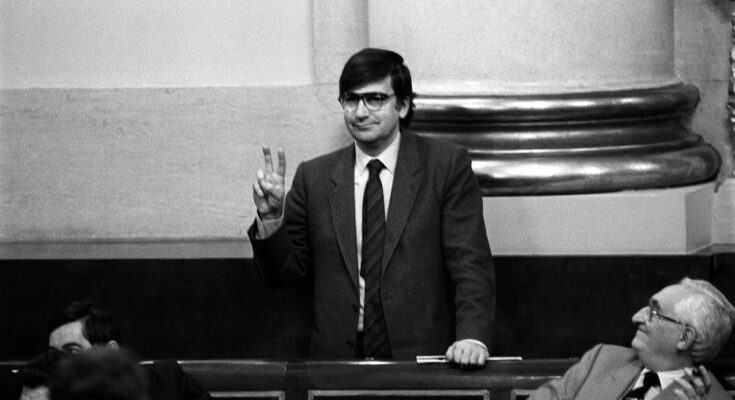Last Friday a quarter of a century has passed since ETA murdered Ernest Lluch in the garage of his home in Barcelona. It is good not to forget what everyone has done to improve the lives of their fellow men. Lluch, Catalan socialist, Minister of Health and Consumer Affairs in the first government of Felipe González (1982-1986), was the factotum of something as important as the right of Spanish citizens to public and universal healthcare which, for many years, before attempts to privatize and weaken it began, was the real flagship.
In this respect, the figure of Lluch recalls the figure of Aneurin Bevan, Minister of Health in the British government of Clement Attlee, who created the British National Health System immediately after the Second World War. Unlike Bevan, who came from a working-class family, had worked in the coal mines and had been a trade union leader before joining the government that replaced Winston Churchill at the end of the war, Lluch was an economist, professor of the history of economic doctrines and came from the Party of Socialists of Catalonia (PSC). In 1948 Bevan introduced a health service based on three principles: free care, tax financing and universality. The welfare state had taken a big step forward.
Clement Attlee established the distinctive features of the British Labor Party, which lasted more or less until the era of the conservative revolution and Margaret Thatcher at the head of the executive: welfare state, nationalization of the main “smoke” industries (coal, electricity, railways, steel) and promotion, central in its economic policy, of social measures such as public housing, education or social security. By the way, these nationalizations were characteristic of British Labor much more than of Northern European social democracy.
The idea of a welfare state was born from the imagination of Churchill, who at the height of the Second Civil War commissioned Sir William Beveridge to write a report containing the main slogans to combat the scourges of British society called the “five giants”: poverty, misery, unemployment, disease and ignorance. Many attribute the phrase about protecting citizens “from the cradle to the grave” to Beveridge, but it is likely that it did not come out of his mouth before that of others. The Fabian movement had also appeared in Great Britain many years earlier. In 1908, two of its members, the couple Beatrice and Sidney Webb, among others, signed a report, Minority reportwhich spoke of an “administered state”, of a system of public assistance from the cradle to the grave, which would ensure “a minimum national standard of civil life (…) for all citizens equally, of any class and sex, by which we mean sufficient nutrition and adequate education in childhood, an adequate salary while being able to work, medical care in case of illness and modest but insured earnings for the disabled and the elderly”.
In addition to attempting to correct the painful economic situation of the early 1980s and initiating industrial and financial reconversions, the first governments of Felipe González focused their attention on the construction of a Spanish welfare state which little by little was put together: public education and the end of illiteracy (José María Maravall), protection against unemployment and preparation for the universalization of pension collection (Joaquín Almunia), decentralized universal and free healthcare. (Ernest Lluch).
This is the Lluch we want to highlight here today, even though his best-known public intervention was the one in the Plaza de la Constitución in San Sebastián, in 1999, surrounded by vociferous ETA sympathizers, when he told them at the top of his lungs: “What a joy to arrive in this square and see that those who shout now were killing (…)! Scream more, shout little, you don’t know how to shout!” Just a year later they killed him by shooting him.



